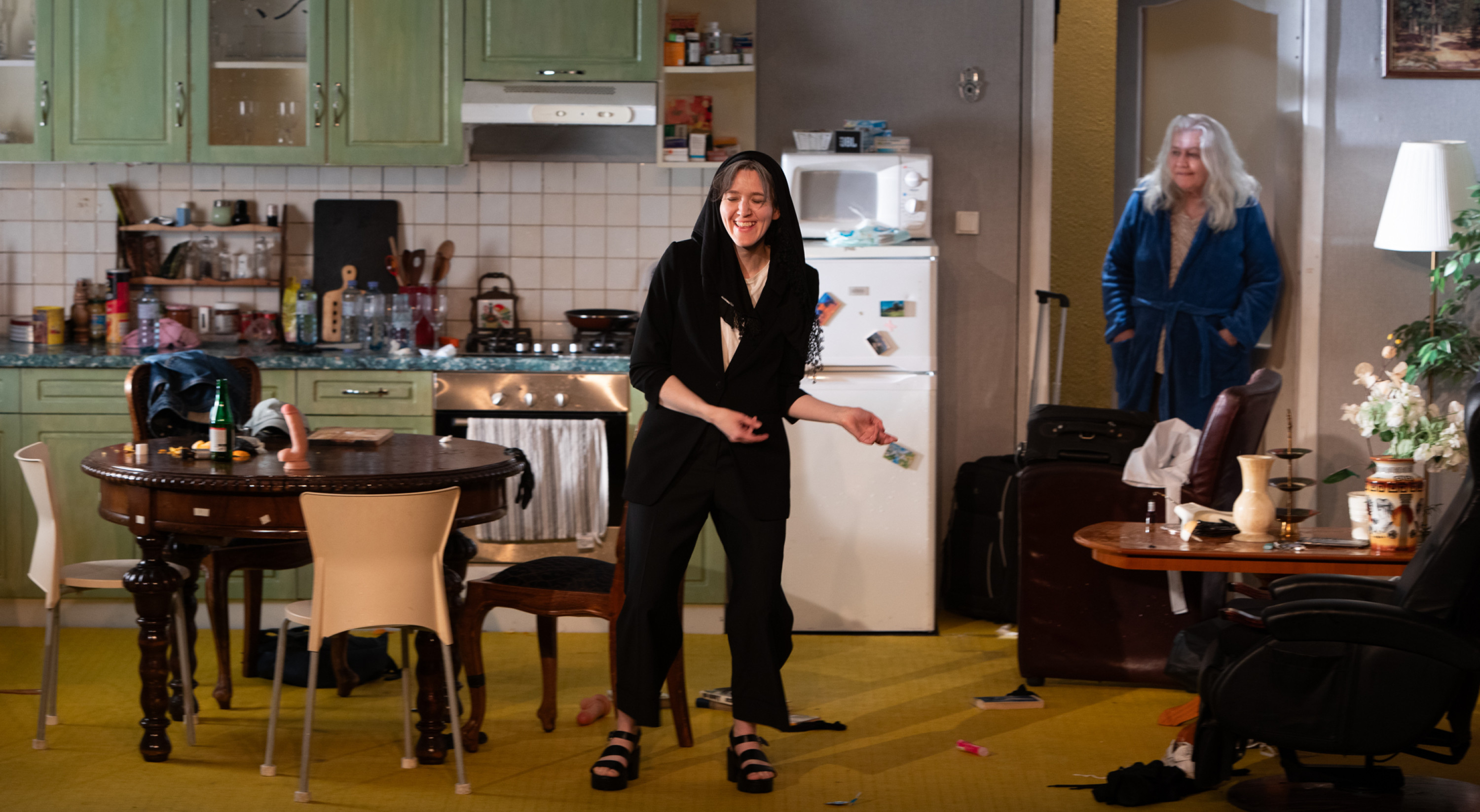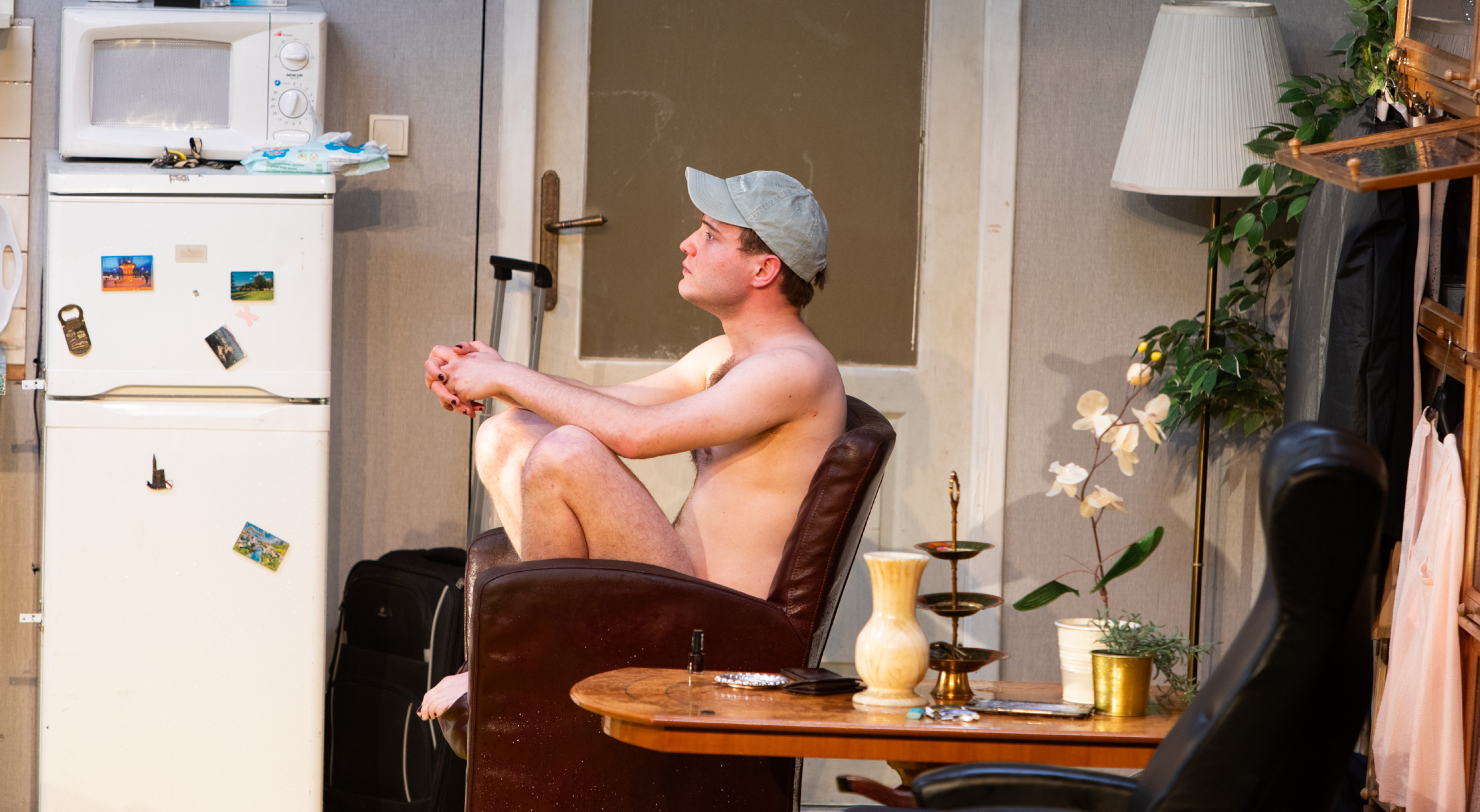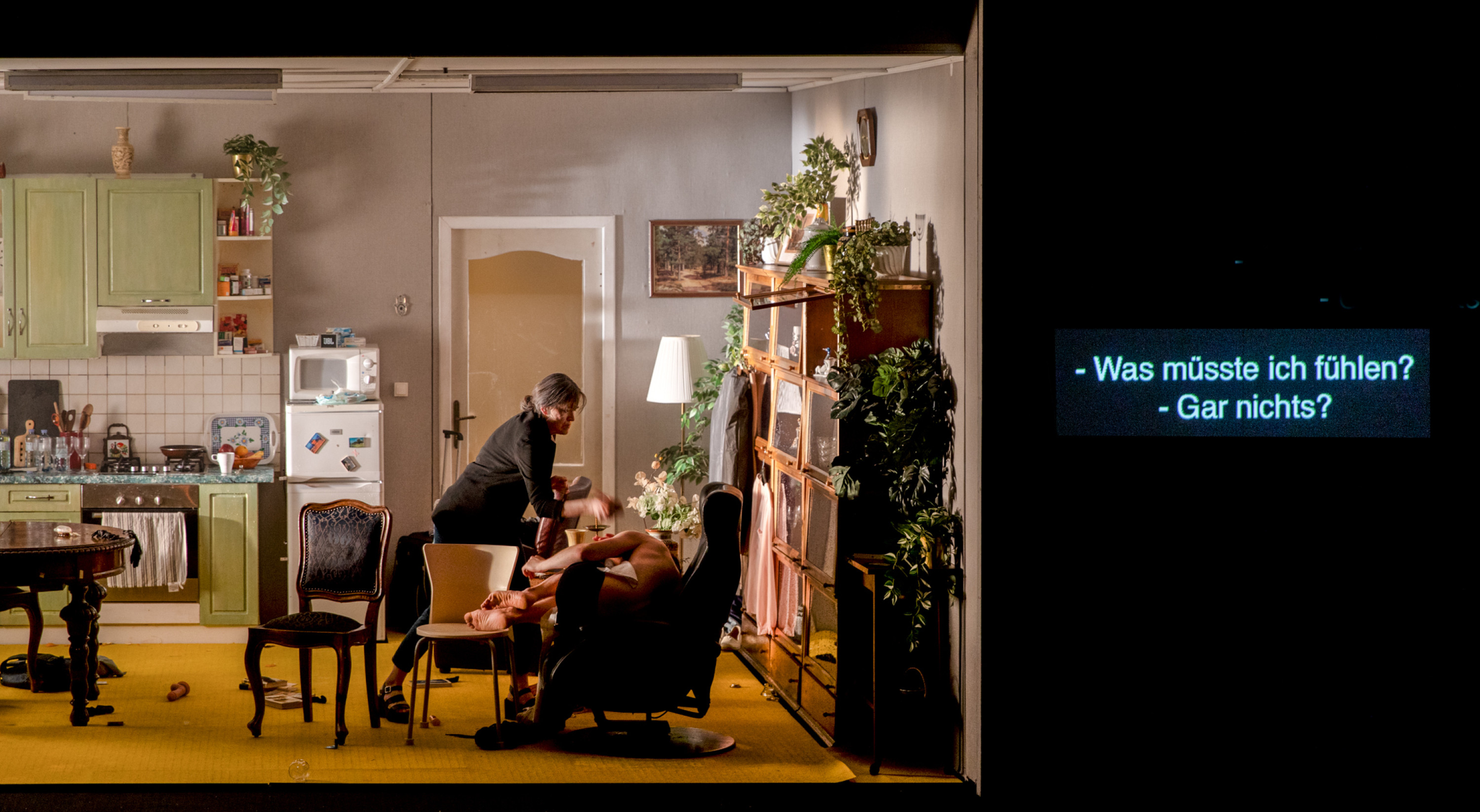Kornél Mundruczó, Proton Theatre
Parallax
octoberoct 10 – 18
Thursday october 10
20h
Friday october 11
20h
Saturday october 12
20h
Sunday october 13
15h
Tuesday october 15
20h
Wednesday october 16
20h
Thursday october 17
20h
Friday october 18
20h
With Lili Monori, Emőke Kiss-Végh, Erik Major, Roland Rába, Sándor Zsótér, Csaba Molnár, Soma Boronkay. Set design Monika Pormale. Costumes Melinda Domán. Lighting design András Éltető. Written by Kata Wéber with the ensemble's improvisations. Dramaturgy Soma Boronkay, Stefanie Carp. Music Asher Goldschmidt. Choreography Csaba Molnár. Assistant director Soma Boronkay. Director Kornél Mundruczó. Production Dóra Büki. Production assistant Henrietta Horváth. Artistic manager Miklós Kékesi. Technical director András Éltető. Lighting technician Zoltán Rigó. Sound technician Zoltán Belényesi. Master prop maker Gergely Nagy. Cameraman Máté Takács, Mihály Teleki, Áron Farkas. Stage master Tamás Hódosy. Stage hand András Viczkó. Dresser Melinda Domán.
Production Proton Theatre
Coproduction Odéon-Théâtre de l’Europe ; Wiener Festwochen – Freie Republik Wien ; Comédie de Genève ; Piccolo Teatro di Milano – Teatro d’Europa ; HAU Hebbel am Ufer (Berlin) ; Athens Epidaurus Festival ; Maillon Théâtre de Strasbourg – Scène européenne ; International Sommerfestival-Kampnagel (Hambourg) ; Centre dramatique national Orléans – Centre-Val de Loire ; La Bâtie –Festival de Genève ; Festival d’Automne à Paris
Soutien Számlázz.hu, Minorities Talents & Casting, Danubius Hotels
The Odéon-Théâtre de l'Europe and the Festival d'Automne à Paris are co-producers of this show and are presenting it as a co-realisation.
The sex scene: a test location in the theater
Listen on France Culture
Kornél Mundruczó in the Midis de culture
Listen on France Culture
The Hungarian film and theatre director Kornél Mundruczó has always been a shrewd observer of the way contemporary society has transformed family structures, as shown in his films White God (2015), a prize-winner at Cannes, Pieces of A Woman (2019) and Evolution (2021). In Parallax, he investigates the notion of identity, at the crossroads between social affirmation and area of freedom.
How can we reconcile the unspeakable nature of post-Shoah trauma with the desire, on behalf of those upon whom this overwhelming heritage has been entrusted, to affirm it? Kornel Mundruczó offers possible answers to this question in Parallax, a piece based on Kata Wéber's text and improvisations by performers from the independent theatre company Proton, which he founded with Dóra Büki. Shifting between Budapest and Berlin, we encounter a grandmother who survived the Shoah, a mother who seeks to “capitalize” on this painful past to ensure a better future for her son Jonas, and the latter's wish to assert his gay identity. The ensuing intergenerational confrontation becomes a tender and lucid attempt at reconciliation between individual and collective stories and their different modes of transmission. Combining theatrical, choreographic and musical elements with a stage design that makes use of spectacular visual effects, Parallax mirrors the past and present. It brings with it the prospect of healing.
In the same place


